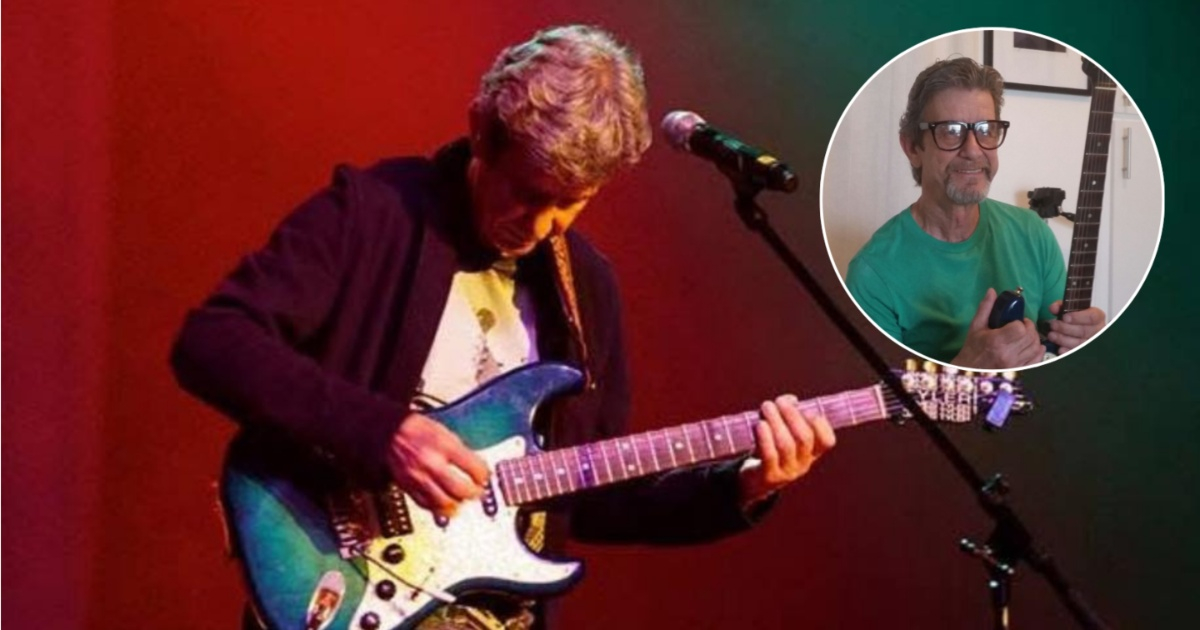The celebrated Cuban guitarist Jorge Luis Fernández Pita, affectionately known as "Pepino," passed away on Sunday, May 25, in Miami. Pepino was famous for his performances with bands such as Los Jets, Los Walkers, Los Barba, Los Dada, and Almas Vertiginosas, as well as with artists like Pedro Luis Ferrer and Felipe Dulzaides.
The news of his passing was confirmed by Dagoberto Pedraja, a fellow musician and close friend of Fernández, who expressed his heartfelt farewell: "Goodbye, dear friend of many years. Rest in peace, I send you a big hug and kiss as a farewell." Cuban music researcher Juan Manuel Camacho also mourned the loss, highlighting Pepino's extensive career and his talent for blending rock and jazz effortlessly.
Artist Karoll William reminisced about Fernández's resilience during a time when artistic expression was stifled in Cuba. "In an era when long hair, rock music, and 'Elvis Presley-like behaviors' were demonized and oppressed... Pepino was making music. He once recounted to me how, after a performance with Almas Vertiginosas, he was detained and questioned at La Cabaña: '–Who is your CIA handler?' '–John Lennon,' he replied."
Pepino left Cuba in 1985, settling in the United States the following year. There, he played with bands like Rockstalg, Private Matter, Garaje H, and Funk-U, P.O.E.M. The latter band included members Omar Hernández (bass), Ricardo Eddy Martínez, Edito (keyboardist and music producer), and Mike Porcel.
Journalist Luis Cino once described Pepino as a "guitar hero," likening him to icons such as Jimmy Page or Ritchie Blackmore during a time when restrictions were severe, and attending a party where a band played could land you in jail. Cino noted that Pepino was known for his long hair and had been "profiled as antisocial by the National Revolutionary Police."
In an interview with researcher and professor María A. Cabrera Arús for El Estornudo, Fernández, who was born in Havana in 1952, shared that his first performance took place around 1968 at a private party in the La Víbora neighborhood. He played with a band called Los Fariseos.
Fernández's choice of attire and his dedication to rock music often clashed with the regime of Fidel Castro, which frowned upon trends linked to foreign or bourgeois influences. "The arrests were always for the same reason: rock = flamboyant clothing (as they called it) = ideological diversionism," he told Cabrera Arús, referencing Castro's public speeches that disparaged youth adopting what were seen as extravagant or effeminate styles, such as tight pants worn by rockers. "Clothing was a key marker for police to request identification, which almost always led to arrest," he added.
Pepino was a pivotal figure in the Cuban rock scene during the 1970s. He was known not just for replicating solos but for creating extended improvisations influenced by jazz-rock, which gave him a unique and progressive style for his time. His death in Miami marks the end of a significant chapter in Cuban music and rock history on the island.
Remembering Pepino: Insights into His Life and Legacy
What bands did Pepino perform with during his career?
Pepino played with several bands, including Los Jets, Los Walkers, Los Barba, Los Dada, Almas Vertiginosas, Rockstalg, Private Matter, Garaje H, Funk-U, and P.O.E.M.
How did Pepino's music style stand out?
Pepino was known for his unique style that combined rock with jazz influences, characterized by long improvisations rather than merely copying solos, making him a standout guitarist of his time.
Why was Pepino considered a controversial figure in Cuba?
Pepino's choice of clothing and dedication to rock music clashed with Fidel Castro's regime, which viewed such expressions as foreign or bourgeois influences, leading to frequent arrests and profiling by authorities.
